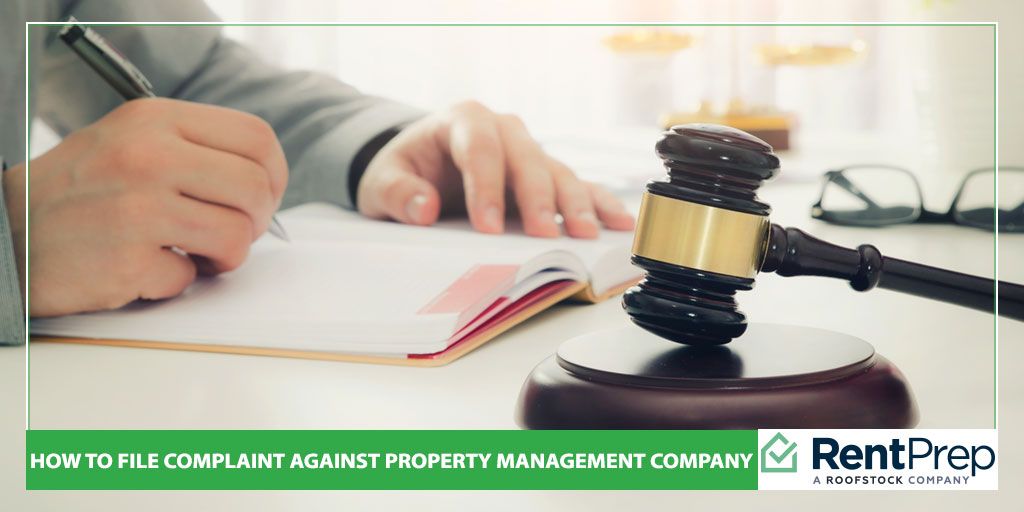
Navigating the complexities of property management can be daunting, especially when facing unresponsive managers. Discover the proper steps to take action against ineffective property management, ensuring your investment remains secure and profitable.
Key Takeaways:
- Directly address issues with your property manager to seek immediate resolution.
- Escalate the problem to higher management or the company owner if necessary.
- Review your contract carefully for specific terms regarding dispute resolution and management expectations.
- Consider firing the property manager and taking control of management tasks to stabilize your property’s operation.
- File a formal complaint against the property management company through the Better Business Bureau, real estate associations, or state licensing boards.
- Legal action might be an option, depending on the severity of the issue and the impact on your business.
Sometimes, you’ll need help managing your business. Bringing on contractors and property managers makes sense as you grow, but that decision doesn’t always yield positive results. You may even need to learn how to file a complaint against a property management company.
Tenants often complain about or take legal action against a property management company but are far from the only ones seriously affected by failing managers. Landlords are also heavily affected, and the heart of their business can even be at stake when their management company fails to uphold their responsibilities.
What can you do if your property manager is ignoring you, causing problems with tenants, or otherwise underperforming? Today, learn where to report lousy property managers and what steps to take immediately.
A Table Of Contents On What To Do When Your Property Manager Ignores You
Property managers are accountable to both the tenants they serve and the landlord they work for. If your property management company fails on either of these fronts, it’s time to take action. Follow along to determine your next steps:
- How Great Property Managers Support Landlords
- When Property Management Goes Wrong
- What To Do When Your Property Manager Ignores You (Or Your Tenants)
- FAQs: How To Handle Bad Property Management Companies
- Can I take legal action against a property management company?
- What are common warning signs of problems starting with a property manager or management company?
- How can I choose a great property management company?
- What should I avoid when hiring a property management company?
- How do you file a complaint against a property management company?
- Reporting Bad Property Managers: A Necessary Step
How Great Property Managers Support Landlords

A good property manager can make all the difference when working with multiple properties. Their services make it possible to balance what you spend time on while actively overseeing what happens at your properties.
What can you expect from a high-quality property management company?
Ideally, they’ll provide the following:
- Rent collection, including late payment fees, rent price setting, and rent adjustments
- Tenant searches, including advertising, screening, and interviewing
- Tenant management, including complaints, repair requests, and inspections
- Property maintenance, including common areas, routine maintenance, and sudden problems
- Research into local and state laws and ensuring all practices adhere to those standards
- Financial tasks, including budgeting, financial reporting, taxes, and record-keeping
The exact tasks performed by any property manager depend on the company’s services and the contract you have in place. If you notice that your property manager is slacking off, taking fast action is essential to ensure you don’t lose tenants, spend too much, or get sued.
When Property Management Goes Wrong
Having a bad property manager can quickly turn into a big problem. Negligent actions by a property manager can lead to you getting into legal trouble. Property managers represent your rental business through contracts, which means you may be liable for their mistakes.
Negligence appears in many ways in property management. Here are some of the most significant issues to be aware of:
- Screening violations of the Federal Fair Housing Laws or state housing laws
- Non-disclosure of serious topics such as lead paint or mold issues that lead to long-term injury for a tenant
- Neglecting repairs necessary for the safety of the tenant
- Entering a rented unit without notice
Illegally withholding the security deposit for too long or for improper reasons
What To Do When Your Property Manager Ignores You (Or Your Tenants)
What do you do when your property manager ignores you or doesn’t meet your standards? You take action. Here’s our step-by-step guide on what to do.
Step 1: Address The Problem Directly

Approach the property management team and let them know about your concerns. Immediately expressing your issues through a letter, email, or phone call is critical and should be well documented.
One team member may have fallen behind on responsibilities without alerting the company. Talking with the company is always a good first step when dealing with these issues and may lead to a positive resolution.
Step 2: Contact Higher-Level Management When Possible
If your property manager is a contractor of a specific company or otherwise reports to another department, contact the higher-ups as soon as possible. Irresponsible managers aren’t going to solve your problems, but you may be able to get a high-quality replacement from the company.
Step 3: Review Your Contract
Before moving forward, ensure you understand your agreement with the property management company. Seek out the areas where the managers are not meeting the agreement’s requirements and gather proof.
You will also want to review the termination and arbitration areas of the contract. These areas will examine what happens when you want to end the management agreement and how that process will occur.
Step 4: Fire The Property Manager
Don’t keep losing money—fire your property management team once you have reviewed the lease. You know the team isn’t meeting the set goals, and it’s time to move on. Even if they want to keep you as a client, they have proven they cannot handle your business needs.
Step 5: Recover Your Business Needs
Your business now needs to be put back on track. While you ultimately want to file a complaint against the property management company and try to recoup your losses, you must first secure your future profits.
Step back into the management role or hire a new company to do so as soon as possible. Ensure your tenants’ needs are met, and tell them you are remedying the previous management issues. Communicating this to tenants is vital, as there may be lingering issues you still need to be made aware of, which they are upset about.
Step 6: How To File A Complaint Against A Property Management Company
Understanding how to report a property manager or file a complaint against a property management company is vital. Once you’ve secured your business, you must file a complaint against the property manager or management company. Begin by documenting all instances of negligence before contacting the appropriate regulatory bodies.
Knowing where to report bad property managers is vital for landlords facing challenges with their property management company. Start by filing a complaint with the property management company’s higher-ups. If this doesn’t resolve the issue, consider escalating your complaint to external organizations such as the Better Business Bureau (BBB) or your state’s real estate licensing board, which oversees property management certifications and conduct.
Contact The Owner
If you were working with a management team member, you would want to file a complaint with the company’s owner or boss as soon as possible. You may have already attempted this, but alerting this party to the issues even after firing is critical.
Real Estate Association And/Or NARPM
You can file an ethics complaint with the NARPM if the manager is a member or with the local real estate association if licenses are required in your area. These organizations work to have a code for property managers to follow. Individuals not meeting the code may have their membership revoked or face other disciplinary action.
Better Business Bureau
You can file a complaint with the BBB. The Better Business Bureau will then contact the property manager seeking a review of the rating, and this can lead to positive action.
Sue The Property Manager
Legal action against a property management company should be a last resort but may become necessary if significant issues arise. Engage a real estate attorney familiar with property law to discuss your situation. They can advise on the feasibility of suing based on breach of contract, negligence, or other legal grounds, potentially leading to compensation for any losses.
Legal action against a property management company may allow you to recoup some or all of your losses, but this will depend on the manager’s business structure and several other issues.
Streamline Your Tenant Screening
You’ll likely be overwhelmed with tasks as you take back your property responsibilities. Finding new tenants sometimes falls by the wayside in these situations, and that’s something all landlords want to avoid.
Save time and money by streamlining your tenant screening process through RentPrep’s enterprise services. These high-volume screening options help landlords process applications accurately and efficiently, even without a property manager.
Take a closer look at our services for enterprise clients today.
FAQs: How To Handle Bad Property Management Companies
Can I take legal action against a property management company?
If your property management company did not deliver on the contract, you could sue them in small claims court to recoup some of your losses. This will depend on the specific terms of the contract as well as your ability to prove significant loss as a result of their actions.
Additionally, it may be possible for your tenants to sue the company if the company directly caused them injury or property damage. However, this wouldn’t be an ideal situation for you. Ultimately, you should support your tenant when possible in their attempts for retribution for their suffering.
If the property management company you work with is an LLC, you may have more difficulty suing them. LLCs have different rules and limited assets that can be claimed. It will require a special real estate company to discover the LLC owners and make the proper filings. You may decide it is too expensive to continue down this route.
What are common warning signs of problems starting with a property manager or management company?
Landlords concerned that their property management company may fall behind or ignore their duties should watch for a few major warning signs.
If property managers are not getting back to you or tenants within a day, there is an issue. You should not be the one who needs to reach out for updates. The property manager should be reaching out to you.
The property manager needs to be just as responsive to tenants. Tenants asking for repairs or needing immediate help should be able to get that assistance. If you start receiving calls from tenants directly, there’s a problem with the property manager’s work.
Make sure to check if property inspections are being completed as agreed upon. Your deal with the property management company may require these before and after move-in and periodically during the tenancy. If inspections aren’t done, you could deal with colossal tenant or property issues without knowing.
How can I choose a great property management company?
Evaluating property management companies before you hire them and throughout the management process is critical. Check their performance before committing to their services, but don’t stop there. Keep checking in to make sure things are going as planned.
These are some key questions you can ask while interviewing property managers to determine if they’re a good fit for your management needs:
- What licenses, insurances, certifications, and codes of ethics do they carry and adhere to?
- How long have they been doing property management, and where were the properties located?
- Do their services extend to leasing and brokerage as well as property management?
- How does their rent payment collection system work?
- How does their owner payout system work?
- How frequently are financial reports sent out?
- Does the company provide necessary tax documents at year-end?
- Does the company utilize in-house contractors or outside vendors?
- What type of vacancy rates do their managed properties have?
- What kinds of fees come with their services?
- How does the management agreement work, and does it automatically renew?
What should I avoid when hiring a property management company?
As you are interviewing potential property management companies, you’ll likely get a sense of whether or not a company is a good choice. However, some red flags are less evident than others.
Watch out for the following when working with a new property management company:
- Unprofessional appearance
- Unprofessional language or behavior
- Slow to respond to inquiries or late to appointments
- Only work regular business hours with no emergency services for tenants
- No references or proof of work
How do you file a complaint against a property management company?
To file a complaint against a property management company:
- Document all negligence or breach of contract instances and submit your complaint directly to the company’s higher management.
- If unresolved, escalate the complaint to the Better Business Bureau, local real estate associations, or state licensing boards.
- In severe cases, consider legal action to recoup losses or address grievances.
Reporting Bad Property Managers: A Necessary Step
Working with a bad property management company leads to bad business. Your tenants will not have a reliable point of contact, and you will not have a dedicated manager on your side. If you’ve identified a problem with your management company, take action immediately to minimize stress and costs.
Once you’ve removed a poor company, review the work they did in detail as you move forward:
- Review all tenant records.
- Ensure all rent is paid, adequately tracked, and up to date.
- Review property inspections and complete any that are out of date.
- Check if vendor invoices have been appropriately paid.
Reviewing this information helps you set better goals, expectations, and tracking measures for any future property management companies you work with. Highly vetting your next company will be essential, but don’t assume all companies will fail you. The right company is out there—you just have to look.

